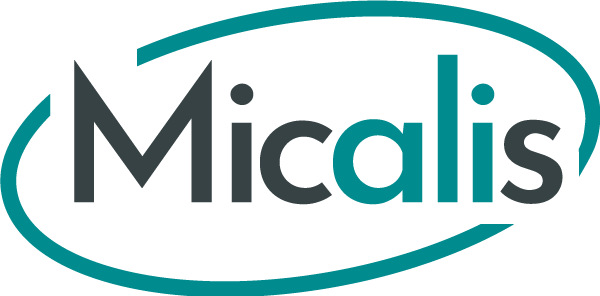- Prince N, Peralta Marzal LN, Roussin L, Monnoye M, Philippe C, Maximin E, Ahmed S, Salenius K, Lin J, Autio R, Adolfs Y, Pasterkamp RJ, Garssen J, Naudon L, Rabot S, Kraneveld AD, Perez-Pardo P. Mouse strain-specific responses along the gut-brain axis upon fecal microbiota transplantation from children with autism. Gut Microbes. 2025 Dec;17(1):2447822. doi: 10.1080/19490976.2024.2447822.
- De Filippo C, Chioccioli S, Meriggi N, Troise AD, Vitali F, Mejia Monroy M, Özsezen S, Tortora K, Balvay A, Maudet C, Naud N, Fouché E, Buisson C, Dupuy J, Bézirard V, Chevolleau S, Tondereau V, Theodorou V, Maslo C, Aubry P, Etienne C, Giovannelli L, Longo V, Scaloni A, Cavalieri D, Bouwman J, Pierre F, Gérard P, Guéraud F, Caderni G. Gut microbiota drives colon cancer risk associated with diet: a comparative analysis of meat-based and pesco-vegetarian diets. Microbiome. 2024 Sep 27;12(1):180. doi: 10.1186/s40168-024-01900-2.
- Roussin L, Gry E, Macaron M, Ribes S, Monnoye M, Douard V, Naudon L, Rabot S. FASEB J. 2024 Jun 15;38(11):e23648. doi: 10.1096/fj.202400334R. Microbiota influence on behavior: Integrative analysis of serotonin metabolism and behavioral profile in germ-free mice.
- Busnelli M, Manzini S, Jablaoui A, Bruneau A, Kriaa A, Philippe C, Arnaboldi F, Colombo A, Ferrari B, Ambrogi F, Maguin E, Rhimi M, Chiesa G, Gérard P. Fat-Shaped Microbiota Affects Lipid Metabolism, Liver Steatosis, and Intestinal Homeostasis in Mice Fed a Low-Protein Diet. Mol Nutr Food Res. 2020 64(15):e1900835. doi: 10.1002/mnfr.201900835.
- Zhang X, Monnoye M, Mariadassou M, Beguet-Crespel F, Lapaque N, Heberden C, Douard V. Glucose but Not Fructose Alters the Intestinal Paracellular Permeability in Association With Gut Inflammation and Dysbiosis in Mice. Front Immunol. 2021 Dec 27;12:742584. doi: 10.3389/fimmu.2021.742584.
- Mir HD, Milman A, Monnoye M, Douard V, Philippe C, Aubert A, Castanon N, Vancassel S, Guérineau NC, Naudon L, Rabot S. The gut microbiota metabolite indole increases emotional responses and adrenal medulla activity in chronically stressed male mice. Psychoneuroendocrinology. 2020 Sep;119:104750. doi: 10.1016/j.psyneuen.2020.104750.
- Zhang X, Grosfeld A, Williams E, Vasiliauskas D, Barretto S, Smith L, Mariadassou M, Philippe C, Devime F, Melchior C, Gourcerol G, Dourmap N, Lapaque N, Larraufie P, Blottière MH, Heberden C, Gérard P, Rehfeld JF, Ferrarris R, Fritton JC, Ellero-Simatos S, Douard V. Fructose malabsorption modifies the endocrine response of the lower intestine by modulating microbiota composition and metabolism. FASEB J. 2019 Jun;33(6):7126-7142. doi: 10.1096/fj.201801526RRArticle #1 DOi
- Jaglin M, Rhimi M, Philippe C, Pons N, Bruneau A, Goustard B, Daugé V, Maguin E, Naudon L, Rabot S. Indole, a Signaling Molecule Produced by the Gut Microbiota, Negatively Impacts Emotional Behaviors in Rats. Front Neurosci. 2018 Apr 9;12:216. doi: 10.3389/fnins.2018.00216.
- Llopis M, Cassard-Doulcier AM, Wrosek L, Boschat L, Ferrere G, Bruneau A, Puchois V, Martin JC, Lepage P, Le Roy T, Lefèvre L, Langelier B, Cailleux F, González-Castro AM, Rabot S, Gaudin F, Agostini H, Prévot S, Berrebi D, Ciocan D, Jousse C, Naveau S, Gérard P, Perlemuter G. Intestinal microbiota contributes to individual susceptibility to alcoholic liver disease. Gut, 2016, 65(5):830-9. doi: 10.1136/gutjnl-2015-310585.
- Le Roy T, Llopis M, Lepage P, Bruneau A, Rabot S, Bevilacqua C, Martin P, Philippe C, Walker F, Bado A, Perlemuter G, Cassard-Doulcier AM, Gérard P. Intestinal microbiota determines development of non-alcoholic fatty liver disease in mice. Gut, 2013; 62:1787-1794. doi: 10.1136/gutjnl-2012-303816.
All the team publications are available in the AMIPEM-MICALIS HAL collection.













